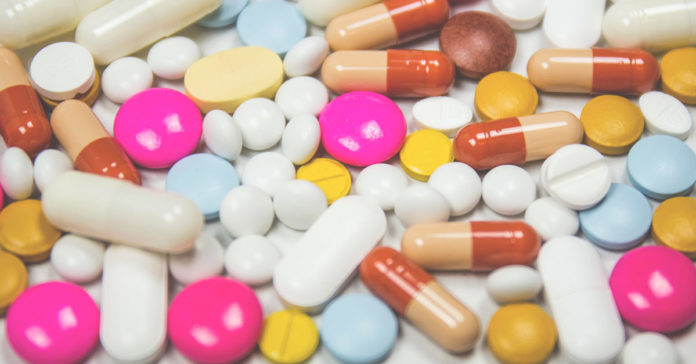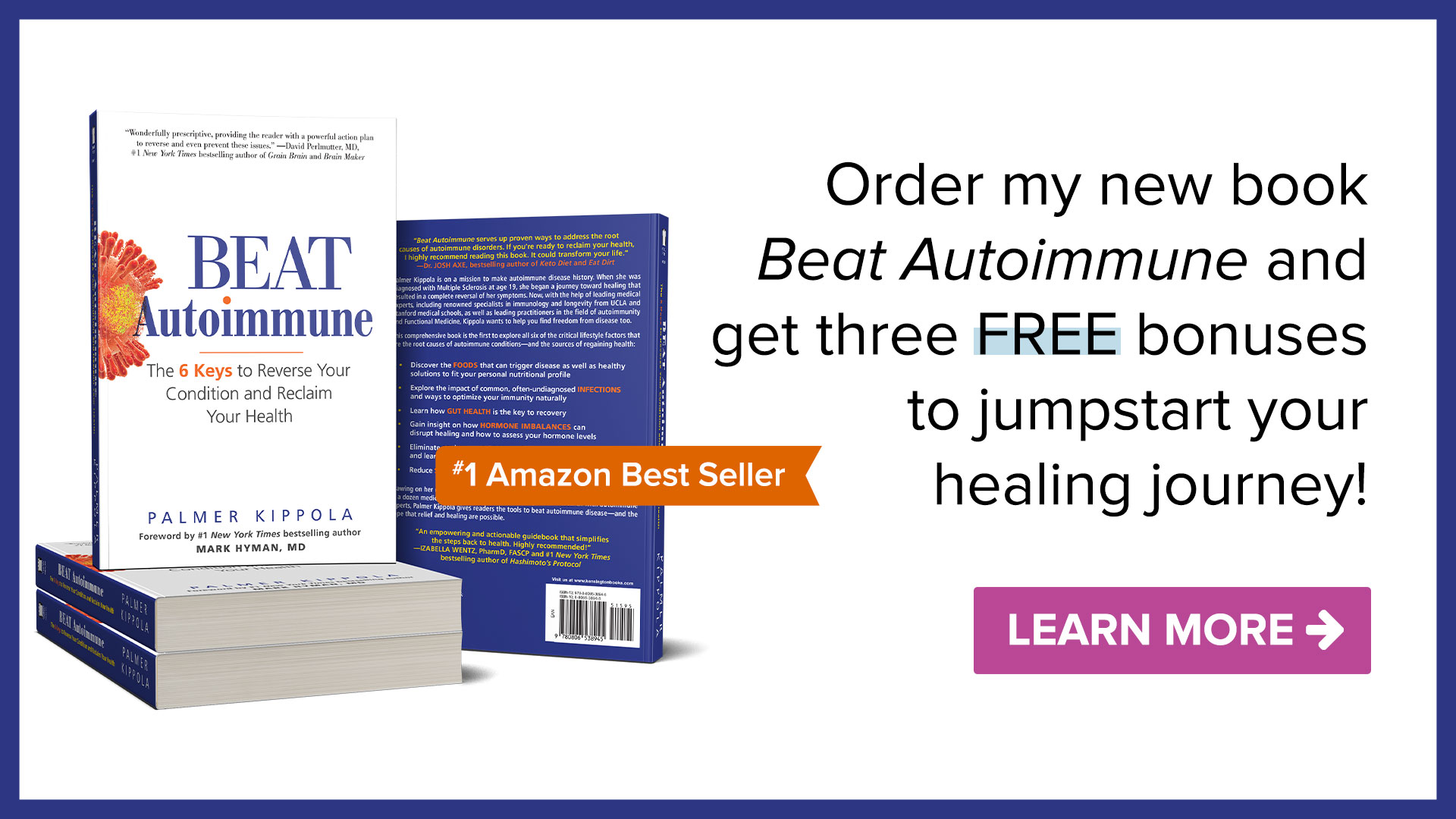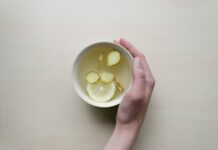
There is no doubt that autoimmune diseases are on the rise and our increasing environmental exposure to toxins and chemicals is fueling the risk. The research is sound. The conclusions, unassailable.
– Dr. Douglas Kerr, M.D., Ph.D., Johns Hopkins School of Medicine, from the foreword to The Autoimmune Epidemic
Our health is the sum of our relationship with the environment – what we eat, drink, absorb, think, breathe, put on our skin, and how and where we live. Unfortunately, our environment is becoming ever more toxic. Numerous industrial chemicals are present in human blood, urine, tissue and breast milk.1Lordo, R.A., et al., Semivolatile Organic Compounds in Adipose Tissue: Estimated Averages for the US Population and Selected Subpopulations, American Journal of Public Health 86(9) (1996): pp. 1253-1259. http://www.nrdc.org/breastmilk/solv.asp Yet — only a fraction of these chemicals have been tested for safety. 2The Great Chemical Unknown: A Graphical View of Limited Lab Testing, Scientific American(™), http://www.scientificamerican.com/article/the-great-chemical-unknown/ If you have an autoimmune condition(s) or a genetic predisposition to get one, you are at greater risk of harm from toxins than the general population.
Toxins are among the top 6 triggers for autoimmune disease,3Vojdani, A. A Potential Link between Environmental Triggers and Autoimmunity, Autoimmune Diseases, Volume 2014 (2014), Article ID 437231; http://dx.doi.org/10.1155/2014/437231 and, given the massive and growing number of chemicals we are exposed to, toxins may soon top the list of triggers:
Autoimmune Trigger: Toxins
You may have heard the phrase, “body burden.” It refers to the total amount of toxic chemicals stored in the human body. You can visualize the body burden as a heavy load that has the potential to bring a pack animal to its knees. Just one more straw can “break the camel’s back.” The average American adult is saturated with 400 toxic chemicals – and that’s a low estimate since only 543 chemicals were tested out of more than 80,000 that are used in consumer products.4Human Toxome Project, Environmental Working Group (EWG) & Commonweal http://www.ewg.org/sites/humantoxome/participants/participant-group.php?group=adult Even babies born today enter the world with an average of 287 chemicals in their umbillical cord blood.5Body Burden: The Pollution in Newborns; Environmental Working Group analysis of tests of 10 umbilical cord blood samples conducted by AXYS Analytical Services (Sydney, BC) and Flett Research Ltd. (Winnipeg, MB); http://www.ewg.org/research/body-burden-pollution-newborns Talk about an unfair start!
Our bodies are designed to detoxify themselves. But, when the toxic load becomes a crushing body burden, accumulated toxins can cause a cascade of health problems including leaky gut, DNA damage, inflammation, autoimmune reactivity and finally, full blown autoimmune disease.
The Toxin-Autoimmune Connection
-
-
- Dr. Patrick Kingsley, the UK’s leading expert on Multiple Sclerosis (MS), reported that of the nearly 4,000 patients he has seen, only five didn’t suffer from mercury poisoning.6Multiple Sclerosis – Poisoning in Slow Motion, What Doctors Don’t Tell You (WDDTY); http://www.wddty.com/multiple-sclerosis.html
- Functional medicine (root cause medicine) pioneer, Mark Hyman, MD developed Chronic Fatigue Syndrome (CFS) due to mercury poisoning, having grown up “on tuna fish sandwiches, eating sushi, living in Beijing, which heats all its homes with coal–the major source of environmental mercury–and having a mouthful of silver amalgam (a.k.a. mercury) fillings.” 7Mark Hyman, M.D. & chairman of the Institute of Functional Medicine; http://drhyman.com/blog/2010/05/20/mercury-get-this-poison-out-of-your-body/#openModal
- Prolonged work at the World Trade Center site – where workers were exposed to silica dust, asbestos, dioxin and lead — was an important predictor of post-9/11 autoimmune diseases. Rheumatoid arthritis was the most common autoimmune diagnosis (37% of subjects), followed by spondyloarthritis (22%), inflammatory myositis (14%), and systemic lupus erythematosus (12%)8Nested case-control study of selected systemic autoimmune diseases in world trade center rescue/recovery workers; Webber M.P., et. al., Arthritis Rheumatol. 2015 May;67(5):1369-76. doi: 10.1002/art.39059. http://www.ncbi.nlm.nih.gov/pubmed/25779102
- “Mary,” a 21-year old college senior, had been diagnosed with debilitating secondary-progressive MS at aged 17, and was hospitalized due to extreme neurological symptoms. An integrative physician found that Mary had a habit of drinking 5 or more diet sodas per day. Two weeks after she stopped drinking diet soda, Mary’s “MS” symptoms vanished and she was re-diagnosed with “excitotoxin poisoning” from aspartame in the diet sodas. 9Russell L. Blaylock, MD, http://www.aapsonline.org/jpands/hacienda/article27.html & Experience Life magazine https://experiencelife.com/article/excitotoxins/
- In a study of 300,000 death certificates in 26 states over a 14-year period, researchers examined links between occupation and death from autoimmune disease. They found that farm workers who worked in fields where pesticides were used were more likely to die from an autoimmune disease, including rheumatoid arthritis (RA), systemic lupus erythematosus (SLE), and systemic sclerosis.10Systemic autoimmune disease mortality and occupational exposures; Gold, L.S., et. al., Arthritis Rheum. 2007 Oct;56(10):3189-201. http://onlinelibrary.wiley.com/doi/10.1002/art.22880/abstract;jsessionid=50BF396B2F8BB5EF40ACF51F8F522147.f02t03
-
Minimize or Eliminate Known Toxic Triggers
Here is a small sample of the most commonly used toxins that are linked to autoimmune disorders:

Bisphenol A (BPA)
Bisphenol A (BPA) is a chemical used to harden plastic. It’s used in water bottles, food containers, utensils, and toys. BPA can leach into the water and food — especially when containers are heated. It appears to cause many immune reactions involved in the development of autoimmune disease. Don’t be fooled by marketing though, newer forms like BPS, and BPF are also toxic. 11The Potential Roles of Bisphenol A (BPA) Pathogenesis in Autoimmunity, Kharrazian, D. 2014; Autoimmune Diseases; http://www.hindawi.com/journals/ad/2014/743616/

Medications
At least 46 commonly used drugs can induce lupus. The list includes drugs to treat heart disease, thyroid disease, hypertension, and neuropsychiatric disorders. Some anti-inflammatory agents and antibiotics are on this list, as well as biologics used intravenously to treat rheumatic diseases. 12Which medications cause drug-induced lupus? Dr. Robert L. Rubin, Professor in the Department of Molecular Genetics and Microbiology at the University of New Mexico School of Medicine in Albuquerque,http://www.lupus.org/answers/entry/which-medications-cause-drug-induced-lupus

Pesticides
Frequent or extended exposure to pesticides may increase the risk for developing autoimmune diseases like lupus and rheumatoid arthritis, according to the results of a long-term study of 77,000 postmenopausal women.13Insecticide use and risk of rheumatoid arthritis and systemic lupus erythematosus in the Women’s Health Initiative Observational Study; Christine G. Parks, et. al.; Arthritis Care Res (Hoboken). 2011 Feb; 63(2): 184–194. doi: 10.1002/acr.20335; http://www.ncbi.nlm.nih.gov/pmc/articles/PMC3593584/

Excitotoxins
Excitotoxins are chemicals that over-stimulate neuron receptors and our taste buds. Commonly used excitotoxins like monosodium glutamate (MSG), soybean extract and aspartame (Equal) found in diet sodas, sugar-free chewing gum, etc., can trigger autoimmune disease.14Russell Blaylock, MD, board-certified neurosurgeon and author of “Excitotoxins: The Taste that Kills;” Interview with Mike Adams, aka The Health Ranger, http://www.naturalnews.com/035555_Russell_Blaylock_interview_excitotoxins.html

Personal Care Products
On an average day, a woman uses 12 personal care products containing 168 unique ingredients, possibly exposing herself to all of the top seven carcinogenic impurities common to personal care product ingredients. Men use fewer products but are still exposed on average to an average of 85 man-made chemicals per day. 15Personal care product use survey, 2003, Environmental Working Group (EWG); http://www.ewg.org/skindeep/2004/06/15/exposures-add-up-survey-results/
Here’s How You Can Protect Yourself
We need to help our bodies by unburdening our toxic load so we have a fighting chance against the growing environmental onslaught. The best approach is proactive, gentle, and continuous detoxification rather than a few harsh and quick cleanses per year. Work with a holistic (integrative, Functional and/or naturopathic) practitioner if you can to investigate your toxic exposures, nutrient deficiencies, and check your methylation status. The “methylation cycle” is a biochemical pathway that manages many essential functions, including detoxification.
Reducing your body’s toxic burden can free your body to more quickly build new cells, get rid of old cells, and repair cellular damage. This will increase your body’s detoxification ability, help you eliminate stored toxins, and alleviate autoimmune disorders related to toxicity.
Practice These Daily Habits to Promote Safe, Effective Metabolic Detoxification:

Go Chemical-Free
Use non-toxic personal care and home cleaning products. A good rule of thumb is: Don’t use it if you don’t recognize the ingredients. A step further: Don’t use it if you wouldn’t eat it. Check out the Environmental Working Group (EWG)’s Skin Deep® database for information on more than 70,000 personal care products.

Eat Your Broccoli (ideally sprouts!)
Whole foods that contain sulforaphane, the cancer-protective nutrient in broccoli, have been shown to boost liver detoxification.16University of Illinois College of Agricultural, Consumer and Environmental Sciences (ACES). “New way to detox? ‘Gold of Pleasure’ oilseed boosts liver detoxification enzymes.” ScienceDaily. ScienceDaily, 29 September 2014. www.sciencedaily.com/releases/2014/09/140929124011.htm

Drink and Bathe in Filtered Water
Drink filtered or spring water and use a filter in your shower & bathtub. Tap water contains toxins and contaminants including fluoride, chlorine, aluminum, arsenic, herbicides and even prescription medications. 17Dr. Joseph Mercola, DO, http://www.mercola.com/article/water.htm

Drink Green Tea
Catechins in green tea (a type of disease-fighting flavonoid and antioxidant) have been shown to promote optimal intestinal microflora and pH and to support healthy bowel function—three qualities that further support optimal detoxification. 18Effect of tea phenolics and their aromatic fecal bacterial metabolites on intestinal microbiota; Lee, H.C., et. al.; Res Microbiol. 2006 Nov;157(9):876-84. Epub 2006 Aug 18. http://www.ncbi.nlm.nih.gov/pubmed/16962743 Note: Some people don’t deal well with green tea — listen to your body.

Stick to Steel or Glass
Use stainless steel or glass water bottles. Avoid drinking hot beverages from paper, plastic or foam cups. Paper cups are often lined with plastic, increasing your toxic exposure.

Move Your Body
Move daily and work up a sweat. Exercise produces an enzyme in muscles that purges the body of harmful substances. This may explain why aerobic exercise elevates mood and reduces stress.19Skeletal Muscle PGC-1a1 Modulates Kynurenine Metabolism and Mediates Resilience to Stress-Induced Depression. Agudelo, L.Z., et. al.; Cell, September 2014; http://www.cell.com/cell/abstract/S0092-8674(14)01049-6

Minimize Meds
Reduce or eliminate your use of prescription and over-the-counter medications. Drugs, after all, are a top trigger for autoimmune disorders! 20Drug-induced autoimmunity, Olsen, NJ, Best Pract Res Clin Rheumatol. 2004 Oct;18(5):677-88., http://www.ncbi.nlm.nih.gov/pubmed/15454126 Work with your doctor to gradually reduce your dosages and quantities of medications as you experience the beneficial effects of healthful lifestyle changes.

Use a Sauna
If you have access to a gym, use a sauna a few times a week. Far or near-infrared saunas support detoxification safely without the high heat of a regular sauna.21Mayo Clinic: What is an infrared sauna? Does it have health benefits? Brent Bauer, M.D., http://www.mayoclinic.org/healthy-lifestyle/consumer-health/expert-answers/infrared-sauna/faq-20057954 You can find portable, reasonably priced ones online.

Minimize Your Electro Magnetic Frequency (EMF) Exposure
Always use a headset with your cell phone. Don’t use your laptop on your lap (especially pregnant women and anyone who wants to have children)22Dr. Joseph Mercola, http://articles.mercola.com/sites/articles/archive/2012/03/05/avoiding-emf-exposure-on-laptops.aspx. Put your electronics on airplane mode when not in use and when you sleep. Better yet, keep electronics out of your bedroom.
As Donna Jackson-Nakazawa, author of the important book, The Autoimmune Epidemic, eloquently writes,
We are our environment. What we put into it, we also put into ourselves. What we do to it, we also do to ourselves. With our eyes open to that knowledge we can begin to make critical and profound choices, embarking on a journey of small steps that will slowly start to make all the difference between health and disease.
What small steps will you take today to ease your body burden?
Take good care!

P.S. Want my personal help beating an autoimmune condition(s)? If you live in the continental U.S. (except N.Y. due to state laws) and are ready, willing, and able to invest in your best health, I offer Beat Autoimmune & Thrive Functional Medicine Programs over Zoom. I collaborate with skilled naturopathic doctors (NDs) who are experts in resolving root causes like gut issues, chronic infections, and toxic burdens which are almost always part of the autoimmune puzzle. Together we provide comprehensive, customized treatment plans, and collaborative, caring support. If you are ready to beat autoimmune and reclaim your best life please book a 30–minute consultation with me to gain clarity, confidence, and explore the possibility of working together.











